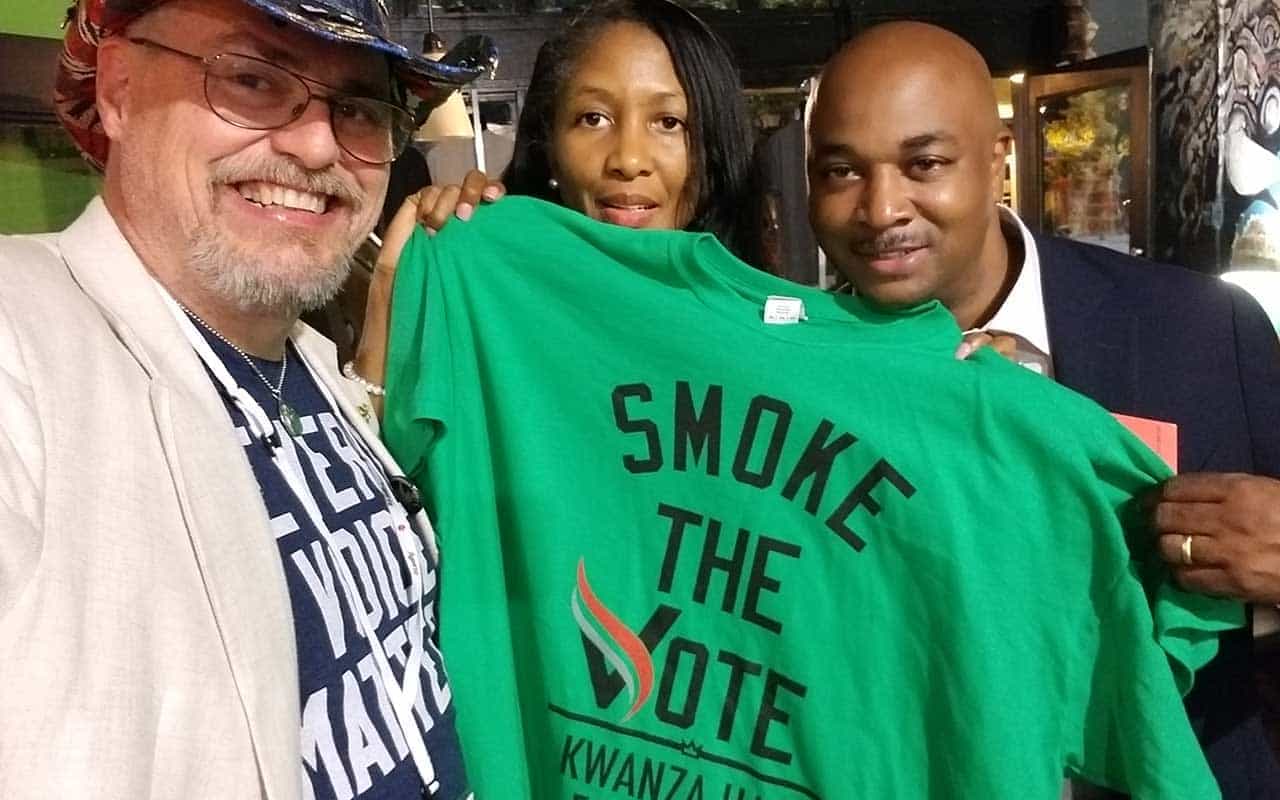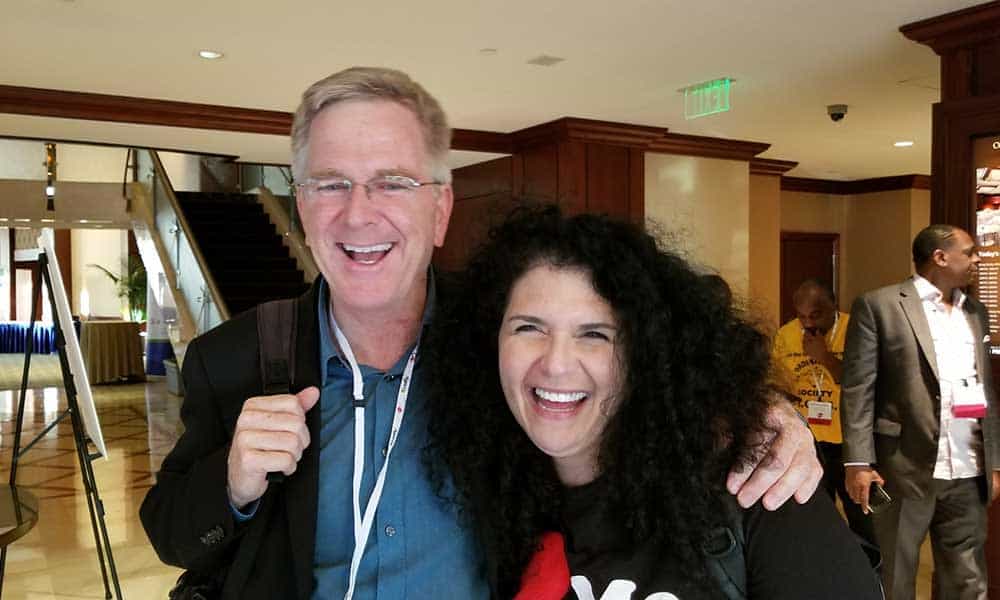The post DPA Reform Conference Day 1: Decrim Takes Root in the South appeared first on High Times.
I’m in Atlanta at the Omni Hotel at the CNN Center for the biennial Drug Policy Alliance (DPA) International Reform Conference. My red-eye flight hadn’t even finished taxiing to the gate Wednesday morning when my social media feeds began informing me that the mayor of Atlanta had just vetoed the municipal decriminalization measure that had just unanimously passed the city council.
It was a false alarm.
A reporter at the Atlanta Journal-Constitution had misreported the story. The mayor had to issue multiple responses to show he had, in fact, signed the measure that now makes possession of less than an ounce of marijuana in the city limits subject to no arrest and a $75 civil fine.
What a way to start a drug policy conference!

That evening, following the conference registration, I attended an evening fundraiser for the Minority Cannabis Business Association. There, I spoke with City Councilman Kwanza Hall, who pushed the decrim measure, about the morning’s confusion over its signing. He chuckled about the situation but was ultimately grateful it all worked out, assuring me that reform would continue and expand in Atlanta should he win his current campaign for mayor.
Then, it was across town to attend a fundraiser for Students for Sensible Drug Policy.
In my opinion, no organization has accomplished more to promote drug law reform than any other. A roster of SSDP alumni, who have gone on to become leaders in their reform fields—from Shaleen Title regulating marijuana in Massachusetts to Tom Angell scooping the world on marijuana news and so many others —shows what a broad impact student organizing has had on our field.
On Thursday morning, the official DPA Reform Conference began.

The conference brings together around 1,500 advocates from every area of drug law reform and harm reduction. So, while there is some talk of the state of cannabis in the world, there is also quite a focus on the opioid overdose crisis. There are advocates for club drugs, psychedelics and other substances as well.
Beyond the substances themselves, attention placed on the complementary issues of formerly incarcerated persons, people in recovery and most potently, the intersectionality of the drug war with issues of race, gender, sexuality and religion makes the Reform Conference a must-attend event for anyone serious about their drug war activism.
The event began with the sounds of an authentic African drum troupe entertaining the attendees who mingled in the enormous foyer of the main ballroom. A section of an adjoining room was set up with the tables of many advocacy organizations, along with piles of books from the various authors who’d be presenting and attending.
My favorite display was the art of Tony Papa, a formerly incarcerated person and strikingly effective communicator who works with the DPA. His drawings and watercolors feature a barbed-wire theme that was a constant visual presence during his time behind bars. In a fitting reversal, one of his displays is a small prison cage, in which he’s placed pictures of Attorney General Jeff Sessions.
The opening plenary began with the incredible asha bandele, the DPA’s senior director of grants, partnerships and special projects. She set the tone for much of the conference, which, in the years I’ve been attending, has adopted some of the feel of a tent-pole revival.

Racial justice as a defining aspect of drug law reform is finally being more broadly recognized. The culture, framing and style of the Civil Rights movement are infusing a new energy into our cause.
bandele made way for former ACLU director Ira Glasser to speak.
Glasser was there to discuss the transition of the DPA since its founding executive director, Ethan Nadelmann, has resigned. With a literal baton in hand, Glasser described the search for the DPA’s new leader, Maria McFarland Sánchez-Moreno. She described her background, working for Human Rights Watch, from her home in Peru to Colombia and elsewhere in Latin America.
“I spoke to people who had survived massacres of entire towns, who had seen their family members raped, tortured, killed, who had lost people to disappearances, who had themselves been forced to flee their communities, becoming forcibly displaced and living in the slums on the outskirts of town,” she explained. “These were millions of people who were being affected by this war.”
Then, it was time for the rock star of the conference to speak, Professor Michelle Alexander, author of The New Jim Crow: Mass Incarceration in the Era of Colorblindness, her 2010 debut publication that many of us in the reform community identify as the seminal tome on the systemic racism inherent in the drug war.
“I don’t believe we have to end racism to end the War on Drugs,” she stated. “I do believe we must be committed to putting race and racial justice at the center of the drug war solutions… For some advocates, making race central means quoting a lot of racial disparity data in press releases. It means posting to social media the latest horrific thing that Donald Trump said. I’m not a fan of this approach. Nearly all of the available research suggests that merely sharing racial disparity data without a great deal of political and social and historical context, and lots of story-telling, only confirms pre-existing racial stereotypes and lies, especially about blacks and Latinos.”
Alexander went on to explain how “people do change their minds when the victims of drug policy are white.”
Her weaving of the tale of media coverage of the 1980s crack epidemic, affecting mostly blacks, versus today’s coverage of the opioid overdose crisis, affecting mostly whites, was compelling. She described Marc Mauer’s book, Race to Incarcerate that revealed data showing that “the most punitive nations in the world are the most diverse; the nations with the most compassionate, or the most lenient criminal justice policies, are the most homogenous. You know, we like to say that diversity is our strength when it may actually be our Achilles heel.”
Following her standing ovation, the plenary session broke, and we made our way to the breakout sessions.

Rick Steves and Dr. Sue Sisley
There are three such 90-minute periods during the day, with six sessions to choose from. I attended panels on CBD-only laws in the South, international cannabis social club models and fighting for harm reduction in the era of Trump/Sessions. The panels dealt with compelling intra-activist conflicts, like:
Do CBD-only laws help advocates fighting for marijuana reform in the South by making a tiny baby step forward, or do they hinder the fight for whole-plant medical marijuana by giving too little to too few and diluting the activism base?
Is the American model of commercialized pot shops the best way to move forward when the excesses of capitalism may cause some to feel we’re promoting addiction for profit, where a social club model might mitigate the over-promotion of marijuana?
Given the threat of Trump/Sessions, do we focus more on defending the gains we have made in reform, or are there opportunities to push for even greater reforms despite them?
I’ll have more on all these sessions, with audio highlights, on next week’s episodes of The Marijuana Agenda free podcast.
The post DPA Reform Conference Day 1: Decrim Takes Root in the South appeared first on High Times.




0 DL LiNKS:
Post a Comment
Add yours...